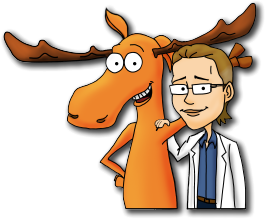Most of us have heard of a gluten free diet and seen the numerous gluten-free products in the stores. However, why do people choose or change to a gluten free diet?
Well, there are many reasons – some people with diseases, notably celiac disease and gluten intolerance, need to avoid gluten to maintain their health. However, many are jumping on the gluten free diet band wagon in the quest for weight loss and good health and well-being.
So … let’s take a look at some of the facts and fiction behind the gluten free diet.
What is Gluten?
Gluten is a term that most of us are familiar with, but what exactly is it? Gluten is made up of two naturally-occurring proteins, gliadin and glutenin, that are found in grains.
Many people think that gluten is only found in wheat grain. However, other grains, such as rye, barley, triticale, couscous and oats, also contain gluten.
A lot of staple foods, for example, bread, pasta, crackers and seasonings are high in gluten. Furthermore, a large number of products, especially chips, salad dressings, sauces, sausages and even some medications, can contain gluten.
A Gluten Free Diet for health conditions
Celiac disease
Celiac disease, or gluten-sensitive enteropathy, sometimes spelt coeliac disease, is an autoimmune disorder that can lead to serious health issues. Do not confuse celiac disease with an intolerance or allergy to gluten.
When celiac sufferers eat gluten, antibodies are formed that lead to inflammation and damage to the digestive tract. The lining of both the small intestine and the large intestine can become damaged over time.
A person with celiac disease will have absorption problems, because a lot of essential nutrients are normally absorbed by the intestines. Thus, the nutritional deficits may lead to health issues such as fatigue and weight loss.
Symptoms of celiac disease
There are many symptoms of celiac disease and not everybody presents with the same ones making diagnosis very difficult. Indeed, some people have no symptoms or very few.
A totally gluten-free diet is the only treatment option for those with Celiac Disease.
Wheat allergy
Wheat allergy is different from celiac disease and is actually, like many food allergies, an immune response to some of the proteins in wheat.
Usually, with a wheat allergy the symptoms will happen very quickly after eating foods that contain wheat.
The allergic reaction is similar to that of any other allergy such as peanuts, and can include:
- Nausea
- Runny or blocked nose
- Abdominal pain
- Itching and swelling of the lips and tongue
- Breathing problems
- Anaphylaxis (in severe cases)
Those with a wheat allergy must avoid all foods containing wheat, rather than just gluten-free product. Indeed, research has shown that there can be 27 different allergens in wheat rather than just gluten.
Non-Celiac Gluten Sensitivity
There has been a lot of controversy amongst nutritional and medical experts surrounding non-celiac gluten sensitivity.
However, recently, studies have shown that there is a significant amount of people who have problems caused by wheat and/or gluten ingestion even though they are not allergic to wheat and do not have Celiac disease.
Importantly, a major difference is that for those with gluten-sensitivity, who do not have Celiac disease, the lining of the gut is not damaged in the same way when gluten is eaten.
Furthermore, recent medical research suggests that a gluten-free diet may benefit other autoimmune conditions, such as autoimmune thyroiditis, autoimmune vasculitis and Rheumatoid Arthiritis.
What foods can you eat on a Gluten Free Diet?
Remember, if you have just been diagnosed with gluten sensitivity or gluten intolerance or Celiac Disease, then do not panic.
A well-balanced, gluten-free diet is very easy to achieve and is packed with fresh, healthy products.
There are many healthy and delicious gluten-free foods out there that can form the staple of your diet.
What can you drink on a Gluten free diet?
There are many soft drinks that you can still have on a gluten free diet. Examples of these include fruit juice, cordials, flavoured water and fizzy drinks.
Worry not, you can drink wine, sherry, port, most spirits and liquers, including vodka, tequila and rum whilst on a gluten-free diet.
Gluten-free diet or not, be careful to stay within the recommended guidelines of alcohol intake, for the sake of both your general health and your waistline.
However, drinks that do contain gluten, and are to be avoided, include barley squashes, lager, stout, beer and ales. However, if you really can’t cope without a beer or two you can easily buy gluten-free beer.
Yes, you will have to check food labels!
The bad news is, if you have been diagnosed with Celiac disease or a gluten sensitivity, you are going to have to check food labels to ensure that your foods are gluten-free.
All packaged food in the UK, Europe and US must list any allergens, including any cereal that contains gluten, on the ingredient list of any product.
Many stores now have whole sections of gluten-free foods. Look out for the gluten-free (GF logo) that means products have been independently verified for meeting strict gluten-free standards. The gluten-free certification organization (GFCO) is one of the most respected certification programs in the world.
Don’t worry, you will easily learn which foods agree with you and are truly gluten-free and which foods cause symptoms. Some foods may have traces of gluten through cross-contamination, and are to be avoided in the future.
Gluten-Free substitutes
Questions and Answers
I have heard that a gluten free diet may help with Autism. Is this true?
Yes, some parents have tried specialized diets to help their children with Autism spectrum disorders.
The most popular diet that is said to improve the symptoms of autism is a gluten-free casein-free diet (gfcf diet).
Gluten as we know, is a protein found in wheat products and casein is a protein found in milk.
Interestingly, early medical studies have suggested that the results of a child diet free of gluten and casein are ‘mixed.’ However, studies so far, ‘broadly suggest’ that a gluten and casein free diet may indeed improve symptoms of autism.
Does a Gluten Free diet lead to weight loss?
Many people who switch to a gluten free diet do lose weight.
However, this may have very little to do with a gluten-free diet. Obviously, if you swap process food for fresh fruit and vegetables, healthy meats and fish then the chances are that you will lose weight.
Furthermore many of the gluten-heavy products such as bread, pasta and cakes are also packed with calories.
Conversely, a recent medical study concludes that a gluten-free diet does reduce adiposity (fat gain) and insulin resistance.
Is a Gluten Free Diet healthier for people without a Medical Condition?
Gluten-free food has become all the rage, even for those who do not have medical reasons for a restrictive diet. Thus, many people choose to go gluten-free because they believe that it is healthier.
However, many nutritionists and medical studies are questioning the popular belief that a gluten free diet is healthier for well people.
Furthermore, one large study in Austria concluded that gluten-free foods are NOT linked with any particular health benefits, but rather show critical nutrients are often missing.
Indeed there is no reason for healthy people to take a gluten free diet. Furthermore, whole grains, including wheat rye and barley, have definite health benefits such as a reduced risk of coronary heart disease, some cancers, obesity and diabetes.
Ironically, the majority of people on a gluten-free diet do not have celiac disease or gluten sensitivity. Unfortunately, a lot of gluten-free substitutes have extra salt, fat and lack essential vitamins, minerals and fiber.
In conclusion, perhaps looking for a healthy well-balanced diet (such as the Mediterranean or Dash Diet) may be a better health alternative than a gluten-free diet for those without health issues.
For our full list of Diet for Diseases Posts please click HERE
New Posts on Halls.md
- Index of ALL our diet posts
- Index of ALL our Weight Loss Posts
- A Vegan Diet: Everything that you need to know about going full vegan.
- The Dash Diet
- 4 Tips to lose an intense amount of weight fast. Rather than swap to a gluten free diet, check out these amazing weight loss tips.
- Green Tea Weight Loss: Fact or fiction? Find out here.
- Hashimoto Diet for Autoimmune Thyroidism
- Probiotics in the treatment of Anxiety
References
- Niewinski MM.(2008) Advances in celiac disease and gluten-free diet. J Am Diet Assoc. 2008 Apr;108(4):661-72 (Retrieved November 28th 2016) https://www.ncbi.nlm.nih.gov/pubmed/18375224
- Saturni L, Ferretti G, Bacchetti1 T. (2010) The Gluten-Free Diet: Safety and Nutritional Quality Nutrients. 2010 Jan; 2(1): 16–34. (Retrieved Novemeber 28th 2016) https://www.ncbi.nlm.nih.gov/pmc/articles/PMC3257612/


